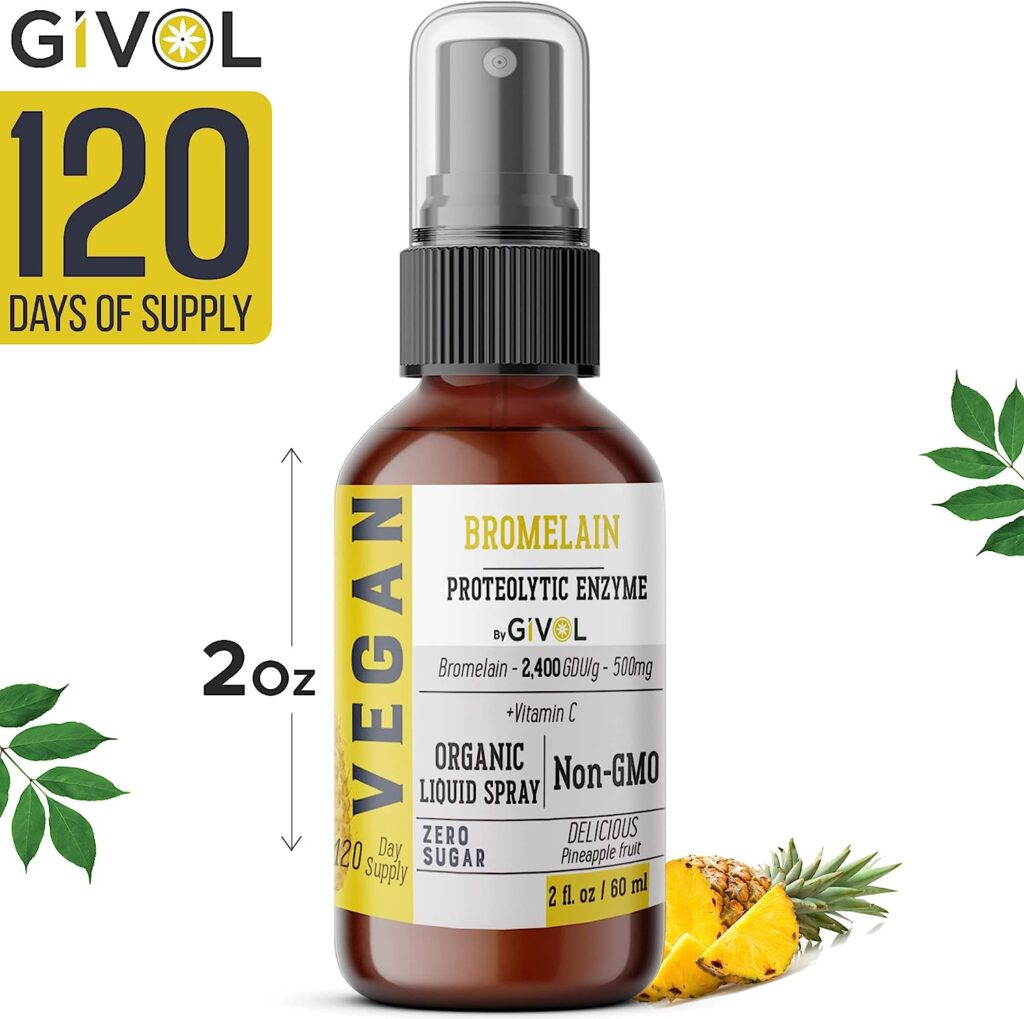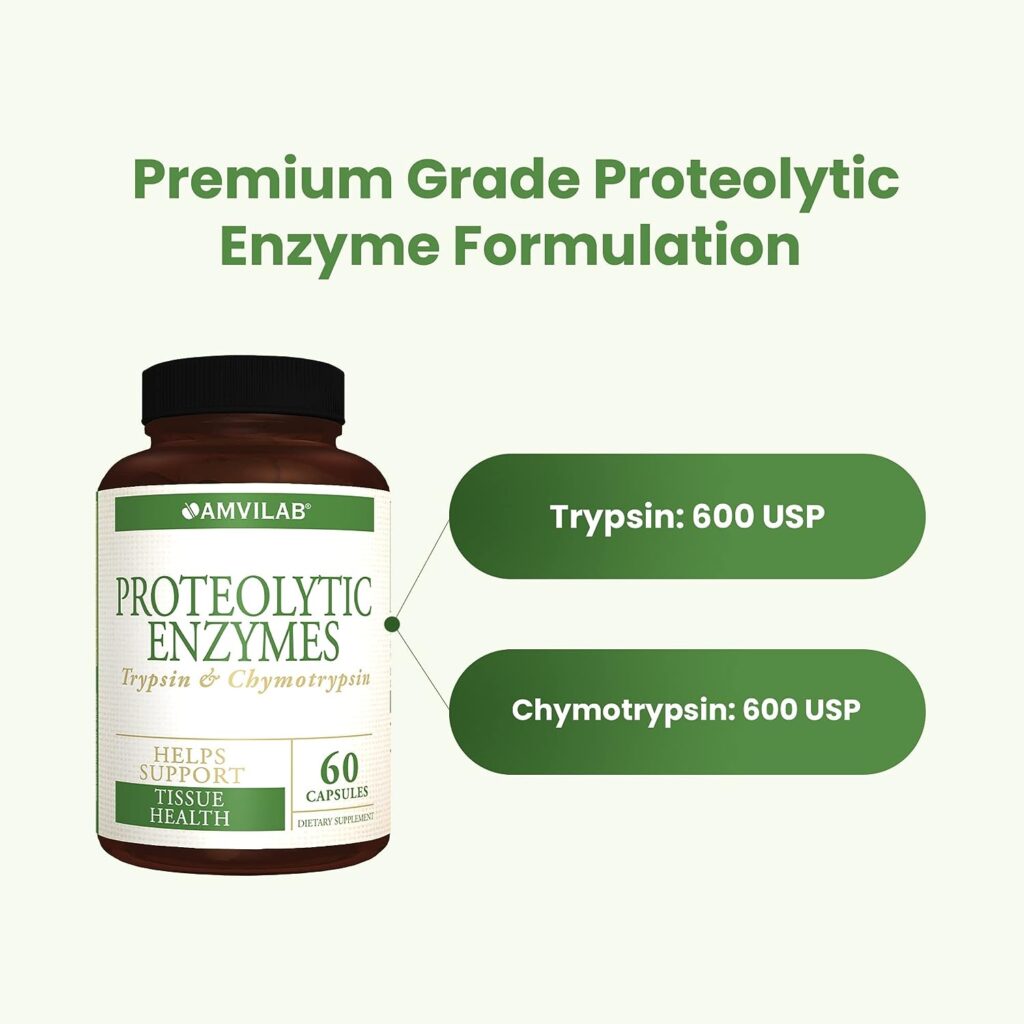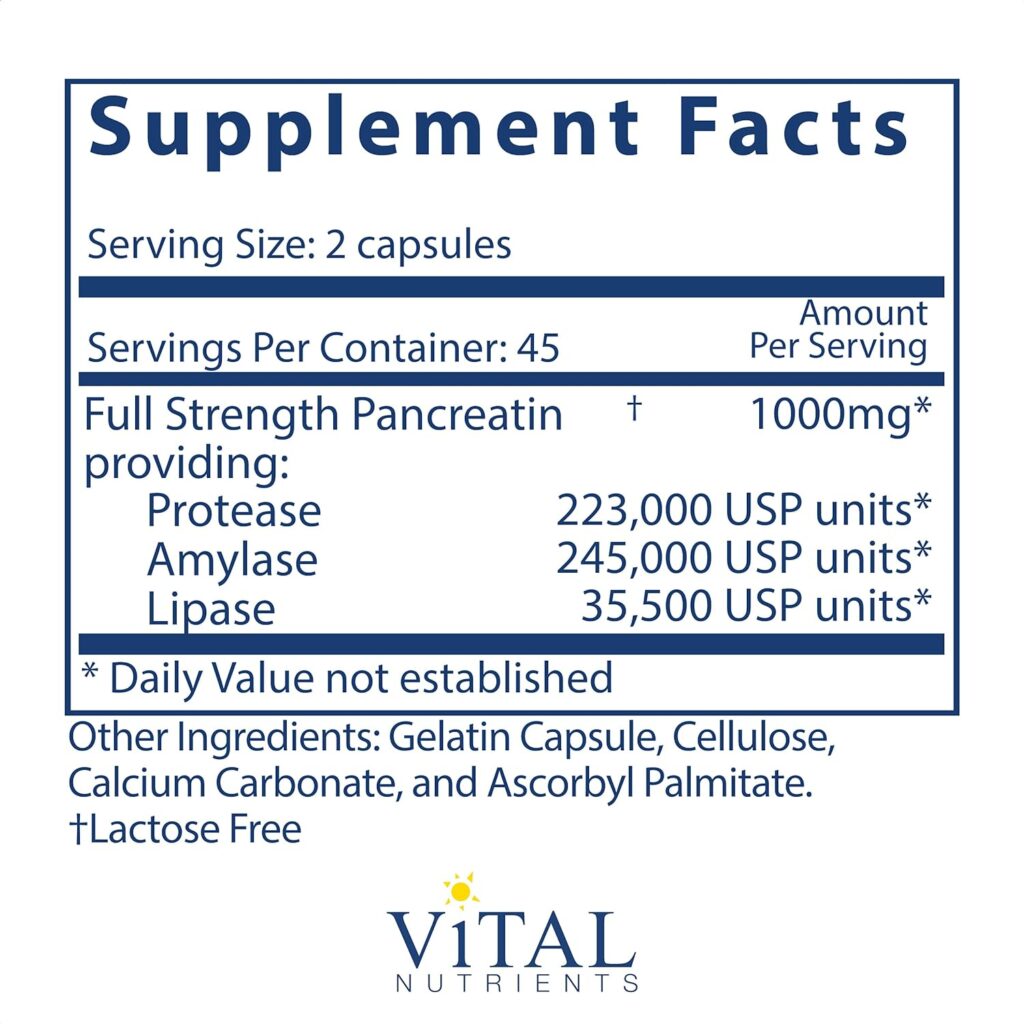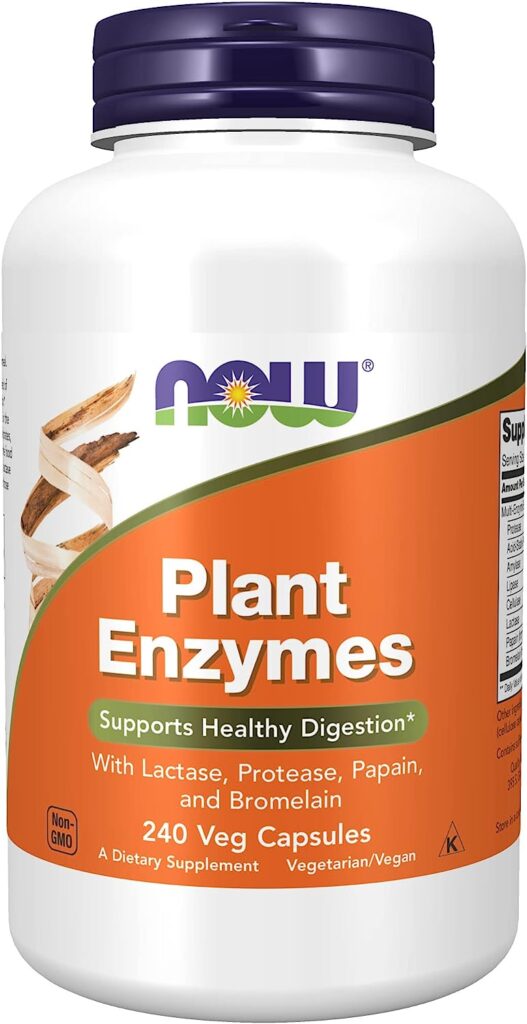Enzymes are necessary for optimum health. In reality, these physiologically active proteins are involved in every single function of the human body. Although there are thousands of distinct enzymes that speed up chemical reactions throughout the body, impacting everything from digestion to food absorption to respiration, proteolytic enzymes are one of the most significant types of enzymes.
Read on to learn more about proteolytic enzymes, such as their typical sources and advantages.
What exactly are proteolytic enzymes?
Proteolytic enzymes, commonly known as proteases, aid in the breakdown and digestion of protein in meals. The term protease is derived from the terms pro (protein) and -ase (a Greek word meaning ‘to separate’). They are also required for several crucial bodily activities, such as cell division, blood coagulation, immunity, and protein recycling.
While the pancreas makes its own supply, proteolytic enzymes can also be found in some foods and supplements.
Did you know that? Trypsin, chymotrypsin, and carboxypeptidase are the three primary proteolytic pancreatic enzymes.
Proteolytic enzymes discovered in food
Although the body produces these protein-digesting enzymes, proteolytic enzymes can also be present naturally in some foods. Papayas and pineapples are two common sources.
Papayas contain papain, a proteolytic enzyme that breaks down protein into amino acids. That’s why it’s been used to tenderize meat for centuries. Pineapples, on the other hand, contain bromelain, another proteolytic enzyme. According to research, bromelain may be utilized therapeutically in a range of illnesses ranging from respiratory issues to stomach trouble.
While papayas and pineapples are the most well-known dietary sources of proteolytic enzymes, the following foods also contain them:
- Asparagus
- Kefir
- Ginger
- Kimchi
- Kiwi
- Sauerkraut
- Yogurt
Did you know that? Proteolytic enzymes are abundant in fermented foods.
This post contains referral links for products we love. Staying Fit With Aeran earns a small commission on these links at no cost to you, and the links will always be marked with an asterisk *.
Supplements for proteolytic enzymes
Proteolytic enzymes can also be found as dietary supplements. Some dietary supplements are single-enzyme formulations, whilst others comprise a variety of proteolytic enzymes originating from plant and animal sources, such as:
Bromelain *

Chymotrypsin *

Pancreatin *
Peptidase
Papain *
Trypsin *

Pancreatin is another popular supplement formulation that is a combination of protease (aids in breaking down proteins), amylase (aids in breaking down carbohydrates), and lipase (aids in breaking down lipids).
While bromelain and papain are produced from fruit, chymotrypsin, pancreatin, and trypsin are obtained from pig and cow pancreas.
Proteolytic enzyme supplements can be advantageous for people who don’t create enough enzymes on their own. However, before beginning a new supplement, it’s always a good idea to consult with a healthcare practitioner.
Furthermore, when selecting a supplement, keep in mind that enzymes aren’t usually measured in milligrams, international units, or other weight measurements. They are instead quantified in terms of potency and activity. HUT, USP, and SAP are common units of measurement. These units of measurement are governed by the Food Chemical Codex (FCC) and are recognized by the United States Food and Drug Administration.
Proteolytic enzymes may have health benefits.
Proteolytic enzymes aid in protein digestion by breaking down protein into amino acids that the body can absorb.
1. Digestive proteolytic enzymes
The most common reason people take proteolytic enzyme supplements is to improve digestion. While most people only require support on an as-needed basis, those with cystic fibrosis, certain cancers such as pancreatic, colon, or stomach cancer, irritable bowel syndrome, bowel disease, pancreatic exocrine insufficiency (a condition in which an individual cannot produce enough enzyme on their own), and those who have undergone gastrointestinal surgery frequently require therapeutic doses to replace the missing enzymes.
According to a preliminary animal study, the proteolytic enzymes present in kiwifruit may aid digestion by breaking down proteins found in meat, poultry, fish, eggs, and dairy products. A randomized, double-blind clinical experiment involving 40 patients with digestive distress discovered that using a proteolytic enzyme supplement alleviated digestive symptoms such as stomach belching, bloating, pain, heartburn, and loss of appetite.
2. Inflammatory proteolytic enzymes
Proteolytic enzymes not only improve digestion, but they are also anti-inflammatory. When researchers administered proteolytic enzymes into test animals, for example, they discovered that the enzyme chymotrypsin was efficient in mending tissue damage due to its anti-inflammatory and antioxidant qualities.
Proteolytic enzymes have also been proven to aid in the treatment of various inflammatory disorders. In one meta-analysis study, researchers discovered that bromelain effectively reduced inflammation and stiffness in people with osteoarthritis. Another study published in Clinical Rheumatology compared a multienzyme supplement to the prescription nonsteroidal anti-inflammatory medication diclofenac in 103 patients with knee osteoarthritis. According to the study, 51.4% of individuals who took the proteolytic enzymes had less inflammation and better function than 37.2% of those who took the diclofenac.
Proteolytic enzymes may also help with inflammation and discomfort in other illnesses, such as sinusitis and dental surgery-related inflammation.
3. Proteolytic enzymes and pain
According to some studies, proteolytic enzymes help alleviate various forms of pain. In one double-blind research, rutin-containing proteolytic enzyme supplementation resulted in a slight improvement in chronic neck and shoulder pain.
Proteolytic enzyme supplementation looks to be a particularly effective strategy to alleviate delayed-onset muscle soreness (DOMS), which is common after a strenuous workout. In one scientific research, 20 runners started taking a proteolytic enzyme supplement or a placebo one day before a downhill run and continued for two days thereafter. Individuals who took the supplement had much less DOMS than those who took a placebo. They were also less stiff and had better movement after the run.
Proteolytic enzyme supplementation has also been demonstrated to alleviate lumbar spine osteoarthritis-related lower back discomfort. In a six-week study of 40 men and women with lumbar spine osteoarthritis, those receiving proteolytic enzymes reported significantly less pain than those on a typical nonsteroidal anti-inflammatory medicine (NSAID). Furthermore, they did not report the frequent gastrointestinal adverse effects associated with NSAID use.
Side effects of proteolytic enzymes
Most individuals consider proteolytic enzyme supplements to be safe. Certain proteolytic enzymes, however, may cause allergic reactions in some people. Chronic pancreatin use may result in folic acid deficiency.
Furthermore, if you are taking medication, you should always consult with your healthcare practitioner. Some proteolytic enzymes, such as bromelain and papain, may interact with blood-thinning medications. Certain antibiotics can also be increased in blood concentrations by papain. Finally, it’s critical to obtain professional counsel about whether enzyme supplements are good for you; if you don’t feel better after taking enzymes or have been taking them for a long time, it could be an indication that something more serious is going on that needs to be addressed.
To Conclude
Although the body creates its own proteolytic enzymes, aging and certain health conditions can contribute to enzyme insufficiency. Adding proteolytic enzymes from food sources or supplements can aid in protein digestion and absorption.
Supplemental proteolytic enzymes can also help to reduce inflammation and pain. Before using a proteolytic enzyme supplement, consult with your healthcare provider to ensure you are on the right track.


